

 Article
Article

 Something happens on the way from a strategy’s creation to its execution: the unpredictable, which can leave many a carefully crafted plan in tatters. Eastern philosophy offers paths to confronting inevitable uncertainty.
Something happens on the way from a strategy’s creation to its execution: the unpredictable, which can leave many a carefully crafted plan in tatters. Eastern philosophy offers paths to confronting inevitable uncertainty.
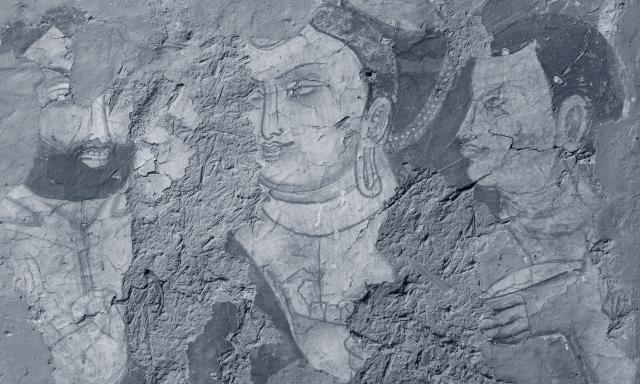
Written by
Something happens on the way from a strategy’s creation to its execution: the unpredictable. Whether it be a competitor’s action, internal upheaval, flawed data or world affairs, the uncertain nature of the future — or what we might simply call “the real world” — intervenes, leaving many a carefully crafted plan in tatters.
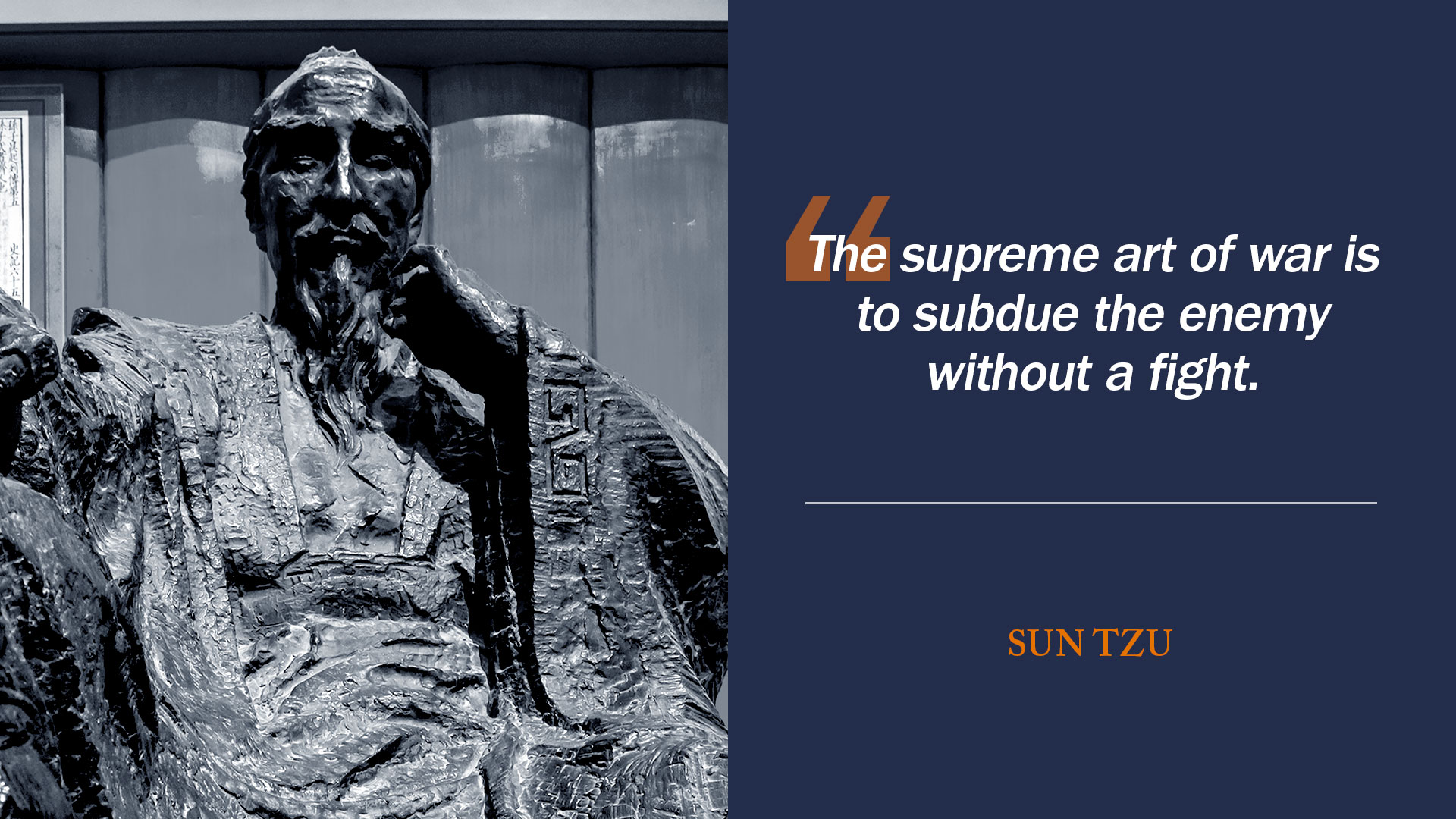
For years, Darden’s Jay Bourgeois, professor emeritus of business administration and a senior fellow at the Darden Center for Global Initiatives, helped his students confront uncertainty using insights from Eastern philosophies. In 2021, two of his top students, Kanokrat Namasondhi (MBA ’15) and Serge Eygenson (MBA ’17), joined Bourgeois to write The Tao of Strategy: How 7 Eastern Philosophies Help Solve 21st Century Business Challenges, published by University of Virginia Press.
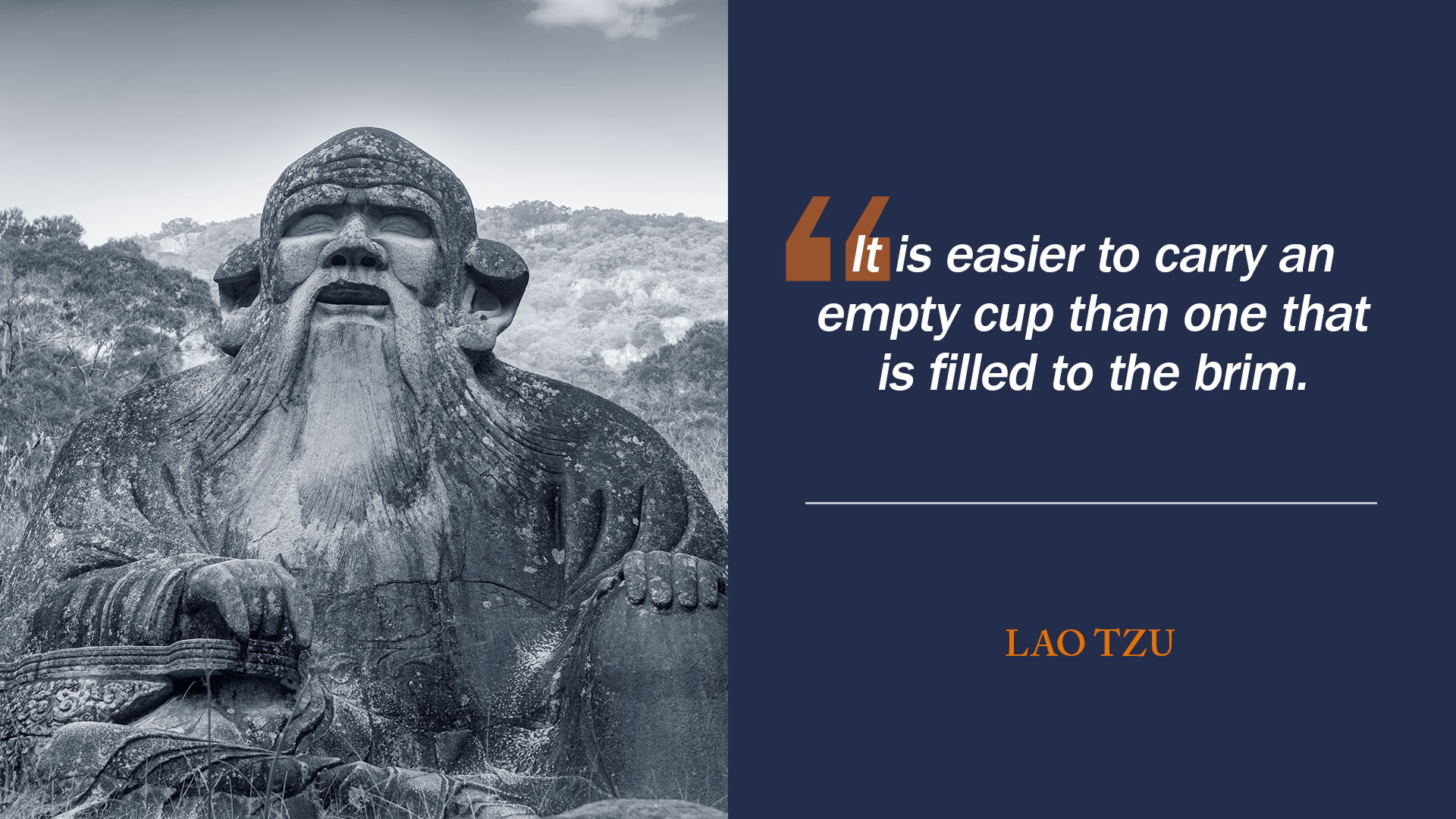
The book examines not so much what strategy “is” but rather how strategy “happens.” Whereas intended strategy comes from tools and techniques for rational decision-making, “emergent strategy” — what actually occurs — is contingent on serendipity, randomness and unpredictability. Because no completely accurate prediction of the future is possible, all strategy will require some adaptation. Frequently, major changes are required. In The Tao of Strategy, the authors use a variety of Eastern sources, such as Sun Tzu’s The Art of War, Lao Tzu’s Tao Te Ching, and the game of Go, to help leaders navigate the terrain successfully.
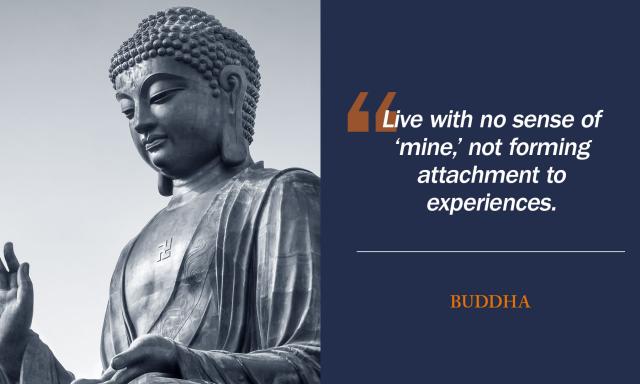
Openness and fluidity lie at the heart of much Eastern philosophy. The “beginner’s mind” and lack of attachment Buddhists cultivate can serve leaders who may invest too much of their own ego in a “make plan, execute plan” model of decision-making. “Your ego,” says Bourgeois, “is typically attached to the outcome of a decision.” What, a leader might subconsciously wonder, does this change to my plan say about me? How does it affect my credibility, status and security?
Western descriptions of leadership often promote actively “taking charge” of a situation. Bold action is idealized. Even listening is described as “active.” Eastern philosophy offers alternative models of leadership and differing assessments of what is valuable.
Western thought typically relies on fixed categories and definitions, which can be useful in many aspects of strategy. But for those more grounded in an Eastern way of thinking, relationships, more fluid and evolving, become the focus, and adapting to change without one’s own ego at stake becomes more likely. Bourgeois notes that Western children typically learn nouns first, while those in the East tend to learn verbs. Verbs are the language of relationships, whereas nouns define finite items and categories.
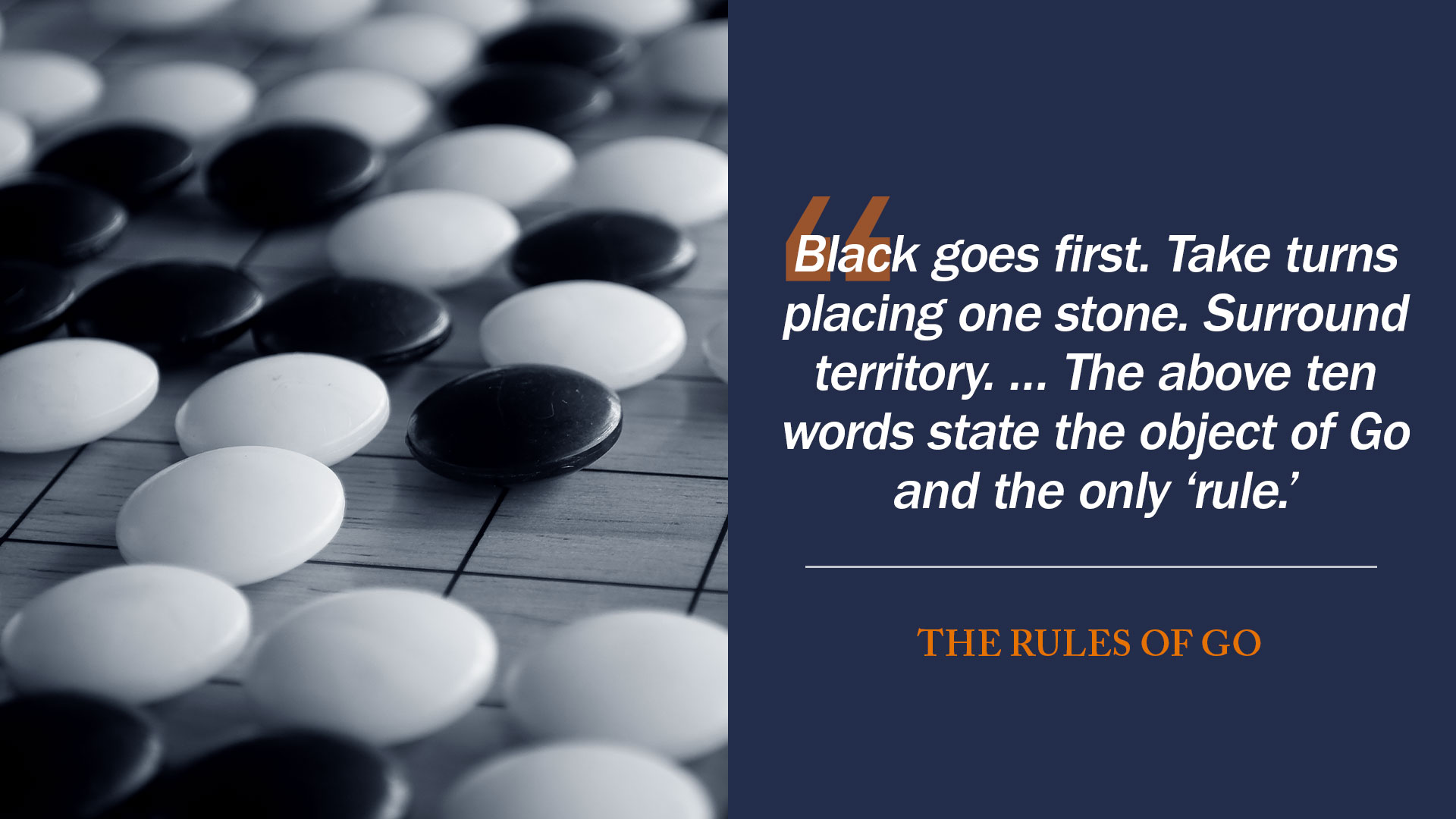
The authors also point to differences between the quintessential strategy games in the West and East: Chess and Go. Chess has a hierarchical set of pieces, each with different rules for how it can move. Victory is achieved by direct confrontation — one piece capturing another until the most important, the king, falls. In Go, however, all pieces are equally valuable. Surrounding, not capturing, is the path to victory. Neither game is superior in any objective sense, but for Westerners, the strategic thinking demanded by Go can prove enlightening when plans inevitably change.
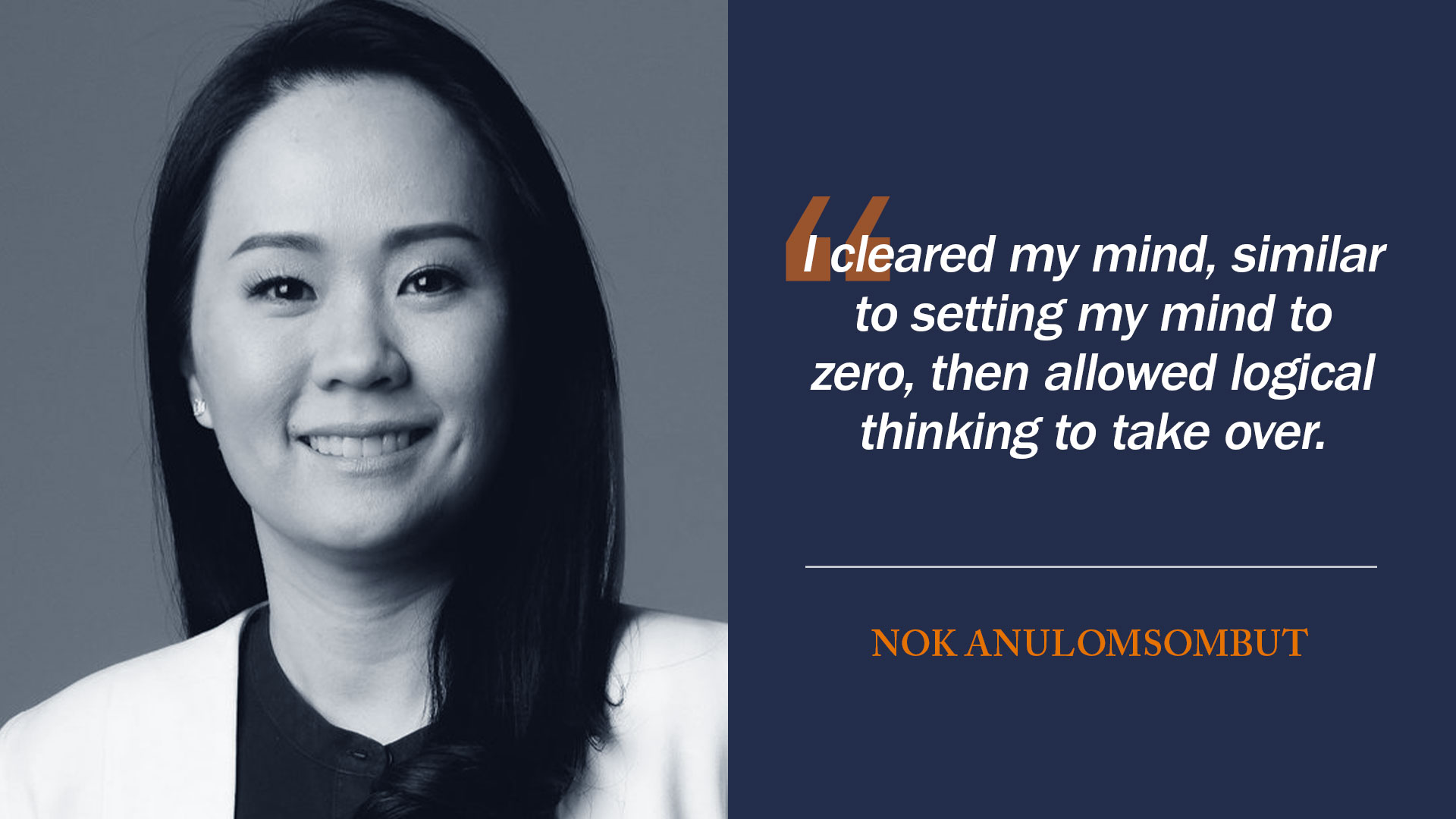
The book is filled with stories, such as that of Nok Anulomsombut. Anulomsombut was the chief operating officer of gaming company Sea Limited, Thailand — she is now the CEO — and found herself confronting unfounded rumors about the company’s ethics, threatening the new company’s survival. In common with many leaders, she felt under fire, worried, and suffered sleepless nights. Before acting, however, she didn’t gather more information, analyze the pros and cons, or push through fatigue. Instead, she stopped her mind from spinning and made room for a solution: “I was in doubt. I needed a break. You can only make the right decision when your mind is at peace. I cleared my mind, similar to setting my mind to zero, then allowed logical thinking to come in.”
When she returned to the problem, she was able to visualize it not as a threat to herself, but as a rock in her cupped hands that she could examine from above. “Having found seclusion, calmed my mind, and allowed for emotional detachment, I was now prepared to contemplate the solution.”
Later that night, like a flash, the answer arrived.
L.J. Bourgeois III, Serge Eygenson and Kanokrat Namasondhi co-authored The Tao of Strategy: How 7 Eastern Philosophies Help Solve 21st Century Business Challenges (University of Virginia Press), which includes many more insights, numerous CEO-level examples and discussions of Eastern philosophies in relation to business strategy.
Bourgeois is an expert in business strategy, its implementation, mergers and acquisitions, and post-merger integration. He has consulted more than 100 public and private corporations, nonprofits and governments across the globe.
The author of a book on post-merger integration and two books on strategy, Corporate Marriage Counseling: Strategies for Integrating Acquisitions, Strategic Management: From Concept to Implementation and Strategic Management: A Managerial Perspective, Bourgeois has also written more than 140 cases and articles in Harvard Business Review and other management journals and is among the top 0.5 percent of most cited authors in the field of management. Before coming to Darden, he taught at Stanford Business School.
B.S., MBA, Tulane University; Ph.D., University of Washington
‘All Strategy is Emergent’: How Eastern Philosophy Enhances Rational Planning
Share